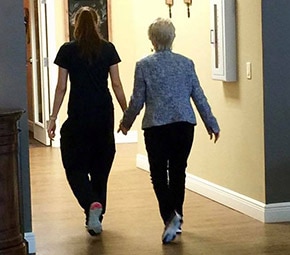What Is Sitting Disease?
Everyone knows that one of the key parts of a long and healthy life is exercise, but scientists are now finding that a lack of exercise is actually dangerous to your health and no longer a choice to not make.
A recent study from Northwestern University took a look at adults over the age of 60 and found that sedentary behavior is a major risk factor for future physical disabilities – this includes issues with basic activities of everyday life, such as eating, bathing, and dressing oneself. The official press release from Northwestern actually states that every additional hour spent sitting every day is linked to a 50 percent increase in the risk of the disablement of seniors. These studies prove that we all must get out of a sedentary lifestyle and avoid this “sitting disease.” This lifestyle change is especially important for seniors, as their risk for illness, social isolation, and overall quality of life is at risk. Thankfully, assisted living facilities offer a range of activities to keep seniors up and active instead of sitting around.
How to Help Seniors Avoid Sitting Disease in Assisted Living
Thanks to the increasing awareness of the dangers of a sedentary lifestyle, assisted living facilities are beginning to incorporate more and more fitness activities that are aimed at getting residents out of their chairs.
For seniors, getting out of their living space with family offers a dual benefit of spending time with their loved ones while increasing everyone’s activity levels and keeping busy. The thing to remember when planning these activities is that every senior has a different threshold for physical activities.
A few ideas for these fun and beneficial activities are:
- Taking a morning or evening walk
- Going on outings as a family
- Low-impact activities, such as tai chi or yoga
- Start a new hobby together that gets everyone moving
- Gardening
To ensure proper care and health requirements are being maintained an assisted living facility may be something you should consider. Contact Angels Senior Living at (877) 480-2244 to speak with one of our Senior Living Consultants about the options we have available for memory care and assisted living.






